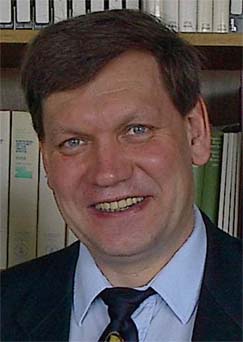New Initiative to Combat Human Aging
See also:
-- 'Books Forum' blog
-- 'Health Studies' blog
Greetings,
I am pleased to inform you that the new issue of The New England Journal of Medicine reviews the idea of a dramatic acceleration of anti-aging research ("Apollo-type effort to control aging") through greatly increased research funding:
The New England Journal of Medicine, 2008, 358(20): 2187-2188
http://content.nejm.org/cgi/content/short/358/20/2187
Here are some excerpts from this published book review:
The Longevity Revolution:
The Benefits and Challenges of Living a Long Life
by Dr. Robert N. Butler
...
----------- THE END --------------------------------
Source:
The New England Journal of Medicine, 2008, 358(20): 2187-2188
http://content.nejm.org/cgi/content/short/358/20/2187
Disclaimer
The authors of this new publication are:
-- Leonid Gavrilov, Ph.D.
-- Natalia Gavrilova, Ph.D.
Center on Aging
University of Chicago
Chicago, IL 60637
gavrilov@longevity-science.org
Do you have any comments on this story?
Post them below by clicking here !
Home:
Longevity Science Blog
and
New Initiative to Combat Human Aging
Shorter weblink:
http://tinyurl.com/5x5ror
.
-- 'Books Forum' blog
-- 'Health Studies' blog
Greetings,
I am pleased to inform you that the new issue of The New England Journal of Medicine reviews the idea of a dramatic acceleration of anti-aging research ("Apollo-type effort to control aging") through greatly increased research funding:
The New England Journal of Medicine, 2008, 358(20): 2187-2188
http://content.nejm.org/cgi/content/short/358/20/2187
Here are some excerpts from this published book review:
The Longevity Revolution:
The Benefits and Challenges of Living a Long Life
by Dr. Robert N. Butler
"This book about the ongoing revolution in human longevity and its implications for society was written by Robert Butler, a professor of geriatrics who is still working at the age of 80. The book is unique in that Butler not only describes the medical and social problems that can be anticipated in the United States when baby boomers reach retirement age but also suggests bold and radical solutions for these upcoming problems.
Butler was the founding director of the National Institute on Aging of the National Institutes of Health from 1976 to 1982, and given his impressive background, his extraordinary plan of action should be considered very seriously.
The main premise of the book is that the anticipated catastrophic increases in rates of disability and the cost of health care among older people could be avoided if the United States committed itself to a large-scale scientific project akin to NASA's Apollo program of flights to the moon.
Butler states that his proposed program "could be dubbed the Apollo Program for Aging and Longevity Science" and goes on to explain that "the present level of development of aging and longevity research justifies an Apollo-type effort to control aging. . . . Now we have both past work as a foundation and new scientific tools offering hope that we may soon have a more prolonged, vigorous and productive life and added longevity. During the twenty-first century, the century of the life sciences, longevity science should truly come of age."
Butler believes that "it may soon be possible to delay both aging and age-related disease in humans" but that "an orbital jump in financing of science is required to advance longevity and health as well as national wealth."
Today, less than 1% of the entire federal budget is spent on medical research. Butler proposes that to improve health and control costs, 3% of the federal government's annual spending on health care should be made available to the National Institutes of Health for medical research. He also proposes that of Medicare expenditures, 1% should be earmarked for the National Institute on Aging. This investment should increase in line with the Medicare budget, but according to Butler, scientific research could lower Medicare expenditures.
Butler concludes that "while the numbers I am suggesting may seem extraordinary, I believe the level of scientific progress in the field since the 1950s justifies such a program. . . ."
As a former director of the National Institute on Aging, Butler understands well where the main wasting of scientific potential currently takes place. As many as 80 to 85% of all research proposals that are peer reviewed and approved (scored) by the National Institutes of Health cannot be funded. This is a tremendous loss of intellectual potential and research opportunities.
With his suggested increase in funding, Butler believes that "at least 30 percent of approved grants (if not more) should be funded." In short, to meet the challenges of the aging population, we need a scientific revolution in the science and medicine of longevity. Butler writes, "Science will find new ways to extend life and its quality. Evidence suggests that morbidity can be further compressed, and society can adapt to the growing numbers of older persons." ...
This book has the potential to change the future of this country for the better if its ideas reach members of Congress and other representatives of the U.S. government."
...
----------- THE END --------------------------------
Source:
The New England Journal of Medicine, 2008, 358(20): 2187-2188
http://content.nejm.org/cgi/content/short/358/20/2187
Disclaimer
The authors of this new publication are:
-- Leonid Gavrilov, Ph.D.
-- Natalia Gavrilova, Ph.D.
Center on Aging
University of Chicago
Chicago, IL 60637
gavrilov@longevity-science.org
Do you have any comments on this story?
Post them below by clicking here !
Home:
Longevity Science Blog
and
New Initiative to Combat Human Aging
Shorter weblink:
http://tinyurl.com/5x5ror
.
Labels: anti-aging, Human Aging, Leonid Gavrilov, longevity, Longevity Revolution, Natalia Gavrilova, New England Journal of Medicine, Robert Butler



5 Comments:
This is a great resources. I appreciate this blog also for the very informative posting.
good post
A complete anti aging site - packed full of anti aging tips, treatments and techniques to help you look younger and feel fantastic today - whatever your age.
http://antiagingworld.blogspot.com/
Who knows where to download XRumer 5.0 Palladium?
Help, please. All recommend this program to effectively advertise on the Internet, this is the best program!
supreme outlet
golden goose
golden goose outlet
golden goose
goyard
supreme clothing
moncler
supreme t shirt
golden goose outlet
golden goose sneakers
Post a Comment
<< Home